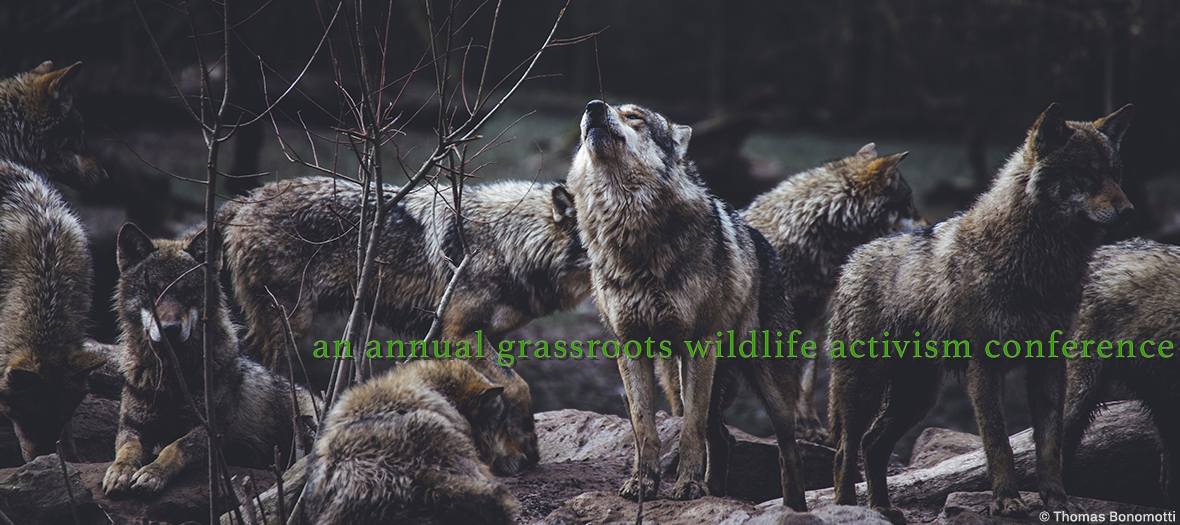We are very excited to finally have made it through winter here in the northern hemisphere and to be moving into spring. As the weather turns warmer, we hope you all get to enjoy more time outside, and we hope…

Recommended Reading
Learn more about the issues behind wolf conservation, wildlife management, and environmental justice through these recommended books and scientific articles. Books: As Long as Grass Grows: The Indigenous Fight for Environmental Justice, from Colonization to Standing Rock by Dina Gilio-Whitaker…
News
February Wolf Update
We hope your 2024 is off to a strong start and we are so glad to have you with us as we continue another year of wolf advocacy. California’s Two New Wolf Packs Have Been Named In late January, California’s Department of Fish and…
2023 Wrap-up
As we wrap up 2023 and head into a new year of wolf advocacy we sincerely want to thank you all for standing with us for the rights of the wildlife with whom we share our planet. Thank you for…

Make a Tax-Deductible Donation to Speak for Wolves
The Speak for Wolves conference is the longest standing, grassroots wildlife conference of its kind, thanks to our dedicated supporters. Speak for Wolves is a 100% volunteer-run 501(c)3 nonprofit organization, EIN 46-2867294.

About the Issues
Wolves once roamed freely across much of the land that is now called North America. Indigenous peoples actively managed the land responsibly, including lands that many in the conservation movement call “wilderness”. Starting in the 1500s through 1800s, European settlers,…
 Speak for Wolves
Speak for Wolves





